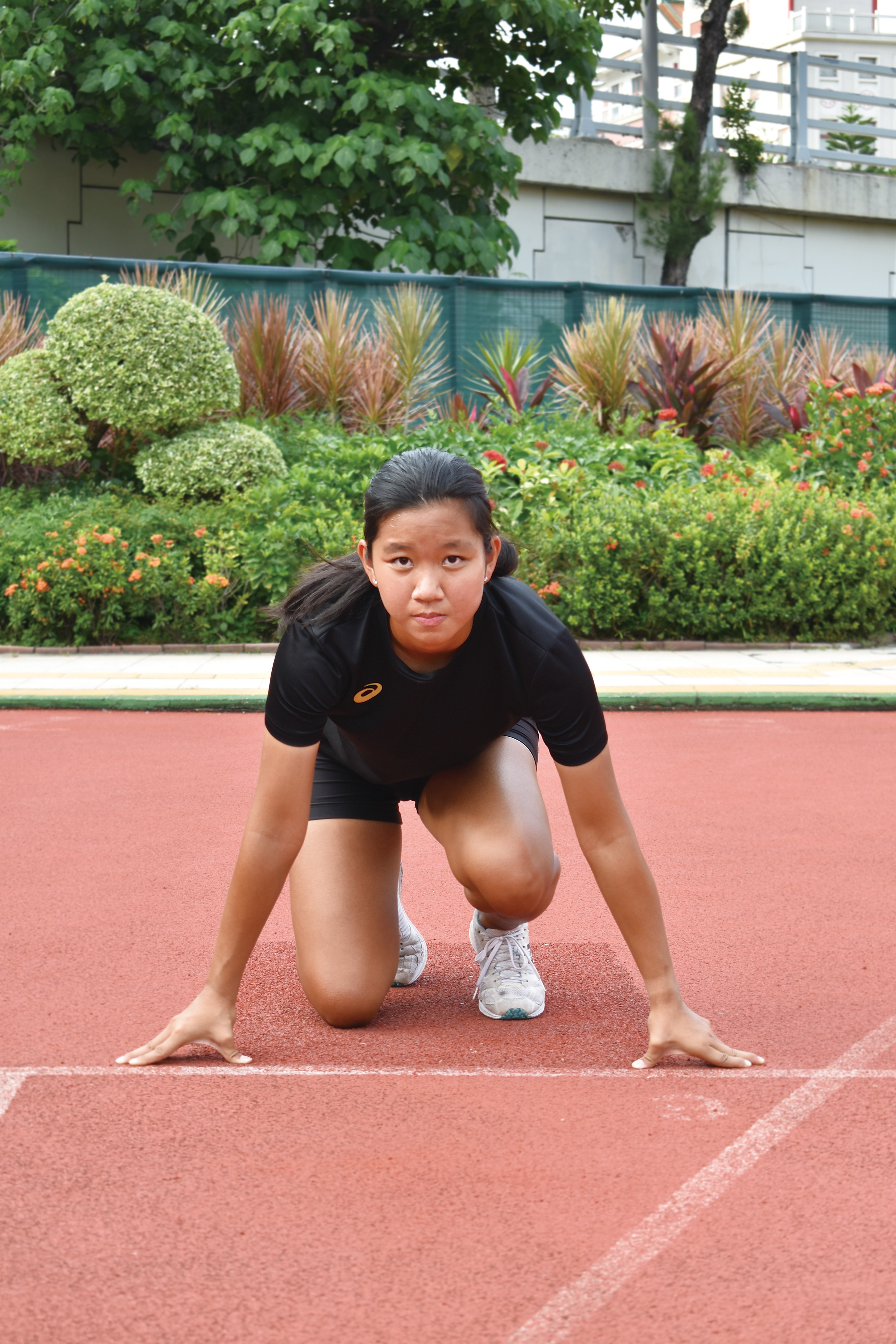Chasing Dreams on The Track

“Treat every running race as if it was the last one. I strive all the best without regrets.”
Finishing a 400m race in 1 minute 7 seconds is not fast enough for Vicky. She determines to push her limits and tries to make it in 1 minute or even faster to meet the eligibility to participate in the Special Olympics. In order to get closer to her dream, she has been participating running and physical training 6 days a week over the past 6 years. No matter how hot or cold it is outside, Vicky refuses to excuse herself from attending her training programme as she returns to the sports ground or gym room day after day. By committing herself to intensive training, she wants to become the fastest runner that she can be.
The Road to Become an Athlete
Being shy and introverted, Vicky has not talked much during the interview. But from her healthy tanned skin and well-built body, you can tell that Vicky, a 21-year-old young lady, is a sports enthusiast. She graduated from the Hong Chi Morninghope School, Tuen Mun last year. Vicky used to join different types of sports such as gymnastics, running, badminton and table tennis when she was a student. Mr Wong, the school’s Physical Education teacher, describes her as a sporty, diligent and self-disciplined student. Driven by a passion for sports, Vicky excelled herself with repetitive and rigorous training. She was chosen to join the school running team and her outstanding performances made her one of the athletes being recruited by the Hong Kong Sports Association for the Persons with Intellectual Disability sports team. Apart from joining major running races in China, the United States, France, Dubai and Japan, Vicky has also won the championship in woman’s 400m race at The 2015 Special Olympics World Summer Games in Los Angeles, the United States.
Lose at the Starting Line
Being a shining star in running sports, Vicky was not the kind of child that “won at the starting line” when she was small. She had a high fever of unknown origin at the age of 2. Infected by this unexplained fever, soon afterwards, she found that she had difficulty in coordinating her body movements. She appeared to move clumsily and performed less well than expected in the daily activities for her age. After receiving acupuncture treatments, Vicky started learning to walk like a toddler. As a student with a below average physical coordination in class, Vicky had to receive regular occupational therapy training at school. But still, she was eager to join all kinds of sports which gradually improved her physical coordination and strength. Her dedication to sports slowly transformed her into a running athlete.
Never Give Up
Professional athletes have to spend a lot of time on their all-rounded training routine. Intensified training regimes and increasing competitive pressure did not shatter her dreams as an athlete. “Winning a race brings great satisfaction to me. I run every race as if it is my last one. I wish I can break my record”, said Vicky. Seeing herself achieving dazzling results in running races, Vicky has once suffered from a serious hamstring injury which took her 6 months to fully recover. During the recovery period, she forced herself back to training, hoping that she could prepare for the next race. After all, resting is just as important as training. To prepare for a longer journey ahead, Vicky decided to follow her teacher Mr Wong’s advice to take good care of herself before starting anew.
Tough training and injury have not extinguished Vicky’s passion for running. Last year, Vicky faced the dilemma of choosing between sports or a job after her school graduation. Finally, she decided to pursue her dreams of a running athlete. “I want to give it a try while I am still young.” Are you afraid that it might be a wrong decision? “No.” She replied softly but firmly. Vicky never loses her faith to become an athlete when challenges arise.
Hard to Get Recognition
Being one of the athletes with intellectual disabilities, Vicky thinks that they do not get the same recognition as mainstream athletes. “Comparing with other mainstream athletes, our achievements have been underestimated by the public.” Since the human body’s voluntary movements are controlled by the brain, people with intellectual disabilities are therefore comparatively weaker in controlling their body movements. Does Vicky agree? “We train just as hard as others do, we are eager to further commit to achieving better results in the sports fields.”
Teacher Mr Wong is deeply inspired by athletes with intellectual disabilities for their unrelenting commitment in striving for excellence. “Because of their physical limitations, I used to think that students with intellectual disabilities could not do much at the beginning. But they never give up on themselves. They keep asking me how to improve and they follow my advice to persist in practicing. They work extremely hard to overcome their own limitations and break through the barriers. What they have achieved is far beyond my expectation.” Apart from receiving science-based sports training, athletes with intellectual disabilities are fully supported by a professional team of nutritionists and therapists in their daily training which helps them narrow the gap between performances and results in the athlete’s world.
On the photo shoot day, Vicky continued to chase her dream on the running track under the blazing sun. We wish her all the best in her future endeavors and may she continue to shine in international tournaments.
Please click here to watch the full video interview
